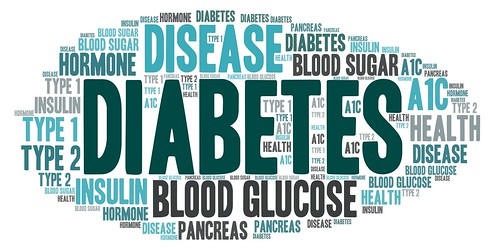Diabetes: Fact Over Fiction
What is Diabetes?
Diabetes is a chronic health disorder that affects how your body processes food and turns it into energy.
After you eat or consume food, your body takes this food and metabolizes or breaks it down into a sugary compound known as glucose. Once broken down into glucose, your body releases this compound into the bloodstream. As the levels of glucose within the bloodstream increase, signals are sent to your pancreas to release a hormone known as insulin. This insulin hormone is what allows glucose into the cells of your body, providing them with the energy required to complete bodily functions. Diabetes occurs when the pancreas cannot produce enough insulin within the body, and as a result, there is a build-up of glucose (sugar) within the bloodstream.
Types of Diabetes:
There are 3 main types of diabetes which include Type 1, Type 2, and Gestational.
Type 1 Diabetes
Type 1 diabetes is believed to be caused by an autoimmune reaction within the body. The result of this reaction is the body stops making insulin. Typically Type 1 diabetes symptoms are seen earlier in childhood and diagnosed in young adulthood. Due to the body ceasing to actively make insulin, individuals with Type 1 diabetes must take insulin daily to survive. Presently, there is no known preventative or cure for Type 1 diabetes.
Type 2 Diabetes
Type 2 diabetes occurs when the body is unable to regulate glucose levels and keep them within normal limits. Usually, Type 2 diabetes takes many years to develop and can be prevented or delayed by living a healthy lifestyle. Many times, symptoms of Type 2 diabetes are not as pronounced as they are with Type 1, which results in many individuals being diagnosed later in adulthood. Type 2 diabetes can typically be managed using a combination of oral medications, physical activity, and a healthy diet.
Gestational Diabetes
Gestational diabetes can appear in pregnant women, even if they have never had diabetes. Gestational diabetes can increase the potential risk for health problems in the baby. Although gestational diabetes will typically subside after pregnancy, it does increase the risk of developing Type 2 diabetes later in life, in both the mother and child.
How does Diabetes Affect Your Health?
Unfortunately, individuals with diabetes are at an increased risk for certain negative health implications, some of which include:
- Cardiovascular Disease
- Stroke
- Vision Deficits (retinopathy, cataracts)
- Dental Disease
- Kidney Disease
- Nerve Damage (also known as Neuropathy)
- Foot Issues (due to decreased blood circulation)
- Decreased Wound Healing
Additionally, individuals with diabetes must take extra care to in maintaining good skin integrity. Dry or broken skin can lead to significant health concerns in people with diabetes. Poor skin care can result in an opening in the skin, allowing bacteria or germs to enter the bloodstream. Individuals with diabetes have an increased amount of sugar in the body, which is a major breeding ground for harmful bacteria thus reducing the body’s ability to fight off infection and disease.
Living With Diabetes
Luckily, there are ways to help combat the negative health implications related to diabetes. Finding educational resources on healthy eating, physical activity, and managing diabetes can go a long way in helping to improve the quality of life living with diabetes. Here are some steps you can take to help reduce the potential risk of health complications associated with diabetes:
- Eat well—eating healthy, nutrient-rich foods
- Staying Active—maintain an active lifestyle and incorporate regular exercise
- Maintain a Healthy Weight
- Manage Blood Sugar Levels
- Diabetes Care—Attend regular healthcare visits with your care provider
- Prioritize Mental Health—Manage stress and anxiety
Want to know more?
Check out the American Diabetes Association page for more information regarding diabetes resources and education.
Resources:
Centers for Disease Control and Prevention. (2022, July 7). What is diabetes? Centers for Disease Control and Prevention. Retrieved November 16, 2022, from https://www.cdc.gov/diabetes/basics/diabetes.html#:~:text=With%20diabetes%2C%20your%20body%20doesn,vision%20loss%2C%20and%20kidney%20disease.
Centers for Disease Control and Prevention. (2022, November 3). Prevent diabetes complications. Centers for Disease Control and Prevention. Retrieved November 16, 2022, from https://www.cdc.gov/diabetes/managing/problems.html#:~:text=Common%20diabetes%20health%20complications%20include,how%20to%20improve%20overall%20health.
World Health Organization. (n.d.). Diabetes. World Health Organization. Retrieved November 16, 2022, from https://www.who.int/news-room/fact-sheets/detail/diabetes



